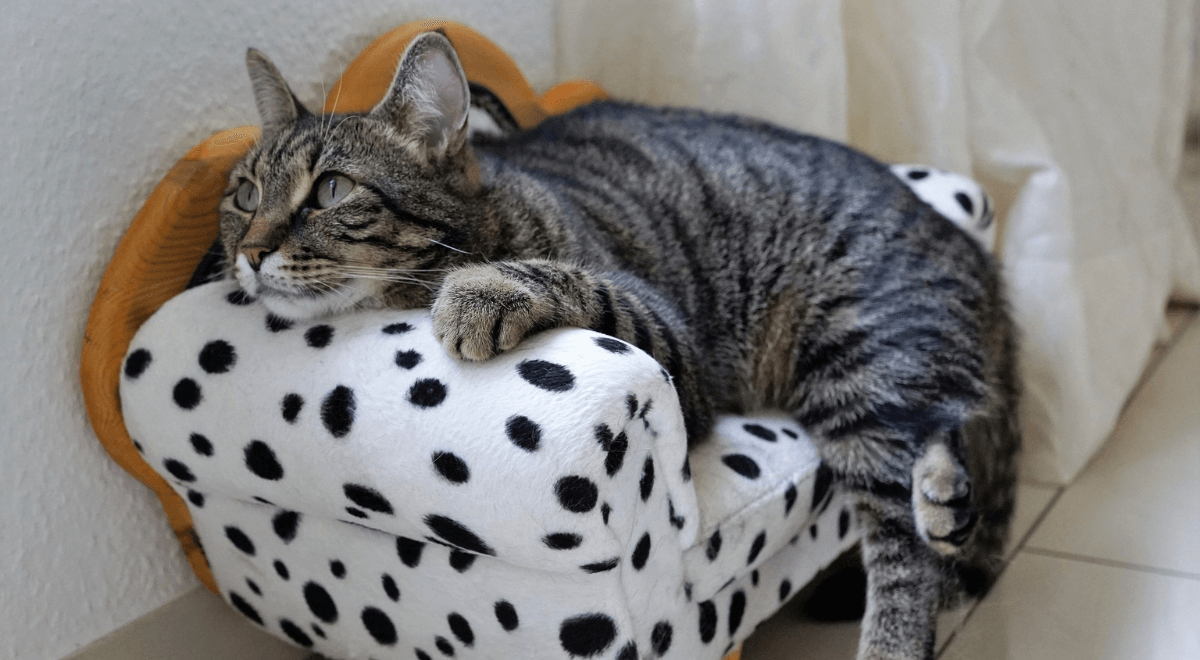Why is my kitten crying? (How to help them stop)
You obviously smile just thinking about your new kitty. Even though you recently acquired your tiny furry friend home, you already find it impossible to fathom life without them. You’ve enjoyed showing them every room in your home, and your cuddle times are definitely highlights. If your kitten is sobbing, you might question if the other person feels the same way. Hearing your young child cry out in pain is quite difficult. Each kitten is different. While some kitties adjust to their new home without any problems, others may cry for various reasons and require some time. A kitten may also call repeatedly each day for a variety of reasons.
Your kitty connects with you using vocal noises, similar to what a human infant does. Because it works to garner your attention, your cat will remain to act this way throughout its lifetime. You can tell a kitten is in need of something by its constant crying. In addition to being annoying, excessive weeping can also indicate that your cat is unhappy or in need of something, which could be as easy as feeding them a little more of the best kitten food if their meowing is caused by an empty stomach. See if any of these four most typical causes of kitten crying apply to your particular kitten. The otherwise healthy kitten will typically cry when they need one or several of the following:
Maintain their interest since a bored cat is (perhaps) naughty. Your cat will remain psychologically and physically content if you play with them every day and give them enrichment.
Reducing Tension
With a nice bed, toys, and a scratching post, you did your best to give your kitten the most significant living conditions possible. Your kitten may be anxious about their new home despite your best efforts, which experts say is normal. Consider this: If you attended a sleep-away camp or moved away for college, you could have missed home on your first night there. It’s the same with your little kitten.
Comfort

Pain and discomfort are less frequent but no less significant reasons for crying in kittens. If your kitten is crying, it could be because it’s in pain, uncomfortable, or doesn’t feel well. It’s crucial to take your kitten to the vet straight away if you think they could be in pain. A thorough physical examination will be conducted by your veterinarian, who may also suggest extra tests like x-rays to check for injuries or blood work to rule out specific conditions.
Your veterinarian can recommend painkillers and other therapies once the source of your kitten’s discomfort has been identified in order to help them recover back to their former selves. A couple of the best kitten teething toys may be all that is required to stop the sobbing if the cause is anything as simple as your child’s new chompers beginning to emerge.
Never administer any medication to your kitten that has not been prescribed for them, including over-the-counter pain relievers. Numerous of these drugs can be hazardous to animals, especially young kittens. Before giving your pets any new medications, supplements, or home remedies, always get their advice from your veterinarian.
In addition, choose a location and keep the water and food there, along with the litter box, there. Make sure that these objects are accessible by anybody, and avoid keeping them on high elves or in obscure areas of the house. Try locations that are visible to the public so your cat can readily find them.
Quality Time
Crying out of boredom and a lack of mental stimulation is one of several typical kitten behaviour issues, much like crying out for attention. To stay healthy and cognitively occupied, kittens require daily physical activity and interactive playtime with you. To keep them busy and occupied, kittens also require a lot of environmental stimulation, including toys, climbing structures, scratching posts, hiding places, and other things to investigate.
Playing with your cat can help them relax and get a better night’s sleep. More importantly, playing together strengthens relationships. Your kitten will feel less anxious in its permanent home the more at ease they are with you.
Food

Cats are famous for making late-night feeding requests. If your kitten is crying, it might be starving. Naturally, young kittens are aware that they should cry to alert their moms to their hunger. Check to see if you are feeding your kitten enough food for her age and weight and if it is crying for food. You should also provide balanced and complete kitten food to ensure it gets sure it is getting all the nutrients it needs as it grows. Your veterinarian is a terrific resource to help you if you’re unsure what or how much to feed. To ensure your kitten is receiving enough calories for growth, ask your veterinarian for advice on the best kitten diet and how many calories to feed daily.
Be careful not to reward this behaviour by giving your cat additional food if they have already eaten their main meals and a few of the best kitten treats. Doing so will just teach them that begging for food is effective. As an alternative, ignore the behaviour or refocus them on something else, such as playing with a favourite toy. Using an automatic feeder to dispense measured servings of food at predetermined times of the day might also be helpful. By removing yourself as the source of the food, your kitty will be less inclined to pester you for a snack.
Determine the source of the crying.
A kitten may cry for a variety of reasons, including boredom, illness, needing food, attention, or simply just being heard. Don’t worry too much if your kitty doesn’t cry excessively; crying is frequently completely typical behaviour. However, don’t hesitate to take your kitten to a veterinarian for assessment if its vocalisations are excessive or if you suspect it might be in pain. Your veterinarian can assist you in determining whether your kitten is crying excessively and in identifying and resolving the underlying causes of the issue.
Your kitten crying is sad, so it makes sense that you’d want to get it fixed as a way. Finding out why your kitten is weeping is the first step. You can make your cat feel better if you figure out what’s making them cry. One method to keep them happy and develop a relationship with them is to play with them. Have chew toys on hand for your cat when they are teething to help with pain relief. Make sure your cat’s water and food bowls are accessible and full, and that their litter box is the appropriate size for their developing body. If you suspect your cat is ill or if you’re stumped, call your veterinarian. They can assist because they’ve seen it all.




